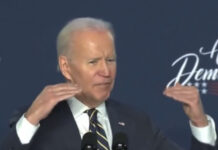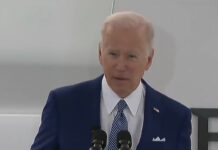The United States had banned refugees from 11 countries on national security grounds following the spate of terror attacks in 2017. The US announced today that it is lifting the 11-country ban. The countries were considered high-risk nations because of terror-related activities. However, US reiterated that the same states would have to undergo stricter scrutiny if they wished to enter the US.
The names of the 11 nations were unnamed, but according to speculation, it includes North Korea and 10 Muslim-majority countries. Kirstjen Nielsen, Homeland Security Secretary stated that the refugees from the said nations would have to face more stringent risk-based assessments to decide whether they will be accepted into the US. She justified her statement by saying that they know it is paramount for them to comprehend who exactly is entering the United States.
Nielsen explained that the additional security measures would make it harder for dangerous players to take advantage of and exploit the refugee program. It is evident that in the past, some beneficiaries of the program committed terror-related crimes against Americans. One such instance was in San Bernardino, California when Syed Rizwan Farook and his wife shot and killed 14 people.
The 11 Countries
Trump’s administration affected the ban in October last year. His government has recently revised the refugee policy to lift the prohibition against 11 countries. At the moment, the names of those countries are unknown, but some refugee groups speculate the list to comprise of North Korea, Somalia, South Sudan, Sudan, Syria, Yemen, Egypt, Iran, Iraq, Libya, and Mali.
A senior administration official, anonymously speaking, averred that the revised policy which enhances security assessment for citizens in the 11 nations, does not in any way act to target Muslims. He added that their admissions had nothing to do with religion.
Donald Trump’s Tenure
The US President has pursued a harsh stance on immigrants and refugees seeking to come to America ever since he entered White House. Former President, Barak Obama set up the 2017 fiscal refugee program which began in October 2016 with allotment for 110,000 refugees. Trumps administration slashed the number to 53,000 and further cut down to 45,000 in the 2018 fiscal year.
The number is expected to be lower because of a backlog from a 120-day halt and slowdown in processing because of the stricter measures that need to be followed.
Trump has also made it difficult for chain immigration which entails a refugee seeking access to the states in connection with their refugee program beneficiary relative. They will still be taken through the stringent measures.




